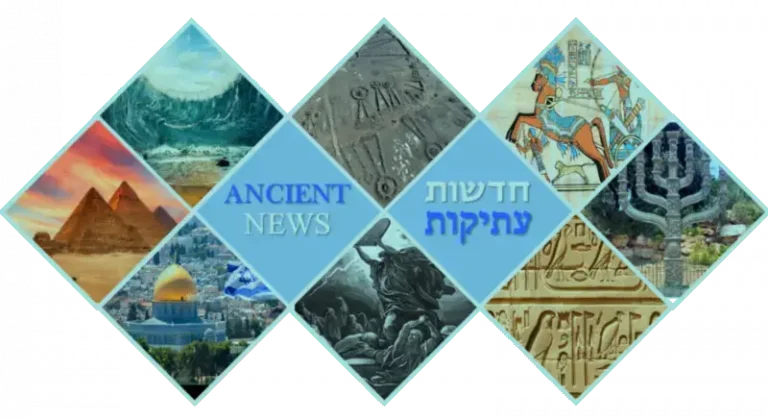The prevailing view in academia today is that the Exodus did not occur because no evidence has been found to support its occurrence. For example:
And that's true!
No finds were found in the Sinai Peninsula, Because there shouldn't be any findings there.
The journey did not take place there at all, but rather in the Arabian Peninsula.
How do you know? Very simple!
Because of Medellin's location.
And Moses fled from Pharaoh, and sat down In the land of Midian (Exodus 2).
Moses married Zipporah, the daughter of Jethro, a priest of Midian, and shepherded his father-in-law's flock. And he led the flock behind the wilderness, and came to The mountain of God, Horeb.
And from the burning bush, God instructs him: When you bring the people out of Egypt, you will worship God on this mountain.
Indeed, about two months after leaving Egypt, the journey reaches Mount Sinai, in Midian (where Jethro, who, as mentioned, is a priest of Midian, visits Moses).
If the people arrived in Midian (i.e., in the Arabian Peninsula) about two months after the Exodus, then from then on (for 40 years) they could no longer be in the Sinai Peninsula, right?
So why did the researchers search there?
Maybe they didn't really want to find it?!


The researchers' position is not at all naive. After all, they could have known the above from a simple study of the Bible. The way they present the matter proves their intention.
Why did they do this? Just as the news item "A man bit a dog" attracts more attention, so whoever kicks harder in biblical history receives greater attention in academia.
As we know, in order to gain academic fame (and research grants), you need to publish as many articles as possible (in academic slang). Publish or Perish(And in Hebrew: Publish or disappear.)
This phenomenon is characteristic of the "sciences of the past" (history, archaeology, etc.): since the only ones who are likely to refute a theory are fellow professionals (after all, the dead will not rise from the dead and prove it wrong), Researchers have a "tendency" to fabricate "discoveries".
There is a tacit agreement among researchers, a kind of "Shut up for me and I'll shut up for you", in other words: "You don't expose my lies and I won't expose your deception."
That way everyone enjoys and no one is left behind.
None of them will reveal the bond of silence.Because everyone cares about academic status and tenure (+ fear of academic ostracism), and the rewards they give each other (grants and appointments to coveted positions).
Who might expose the fraud?


Why is academia ignoring this research?
Honestly, I don't have a good answer to this question.
From the very beginning, I did my best to involve others in the research process itself. After 4 years of research, once most of the conclusions had been formed and I had begun writing them, I sent the manuscript (+ abstracts) to leading academics in the field. I emphasized its importance and offered collaboration.
How great was my surprise that I encountered complete disregard.
To my chagrin, and in order to receive even a small consideration such as writing a review of the research, I even suggested to someone to list him as a co-author of the book (including sharing in the revenue) – but in vain, I was ignored and met with deafening silence.
Why?!
Is it out of jealousy or pride? After all, here comes someone who has no degree in history or archaeology, and manages to solve a mystery that has never been solved before...
Or is it because they think the issue is simply unsolvable?!
Or are they afraid of being harmed if they support research conducted by someone who is not from the "right" academic circle?
Or maybe worse, they fear for their academic standing if this study proves their academic perception wrong?!
And maybe it's because the mainstream in academia is secular, and in its opinion the Bible is nothing more than a myth?
Moreover, when I approached the rabbi (who is also a professor, historian, and archaeologist), he dismissed my request with disdain!
When I spoke to one of the major book publishers, I was required to present an opinion from an academic authority. And lo and behold There is no academic authority on this subject..
Despite everything, I decided to publish the research as a book, because the topic is too important to be dealt with in the context of conflicts based on considerations such as honor or career.
It is not easy for me to write these things. But despite all the difficulty, 10 years have already passed, and who knows how many more will pass, without receiving academic attention.

